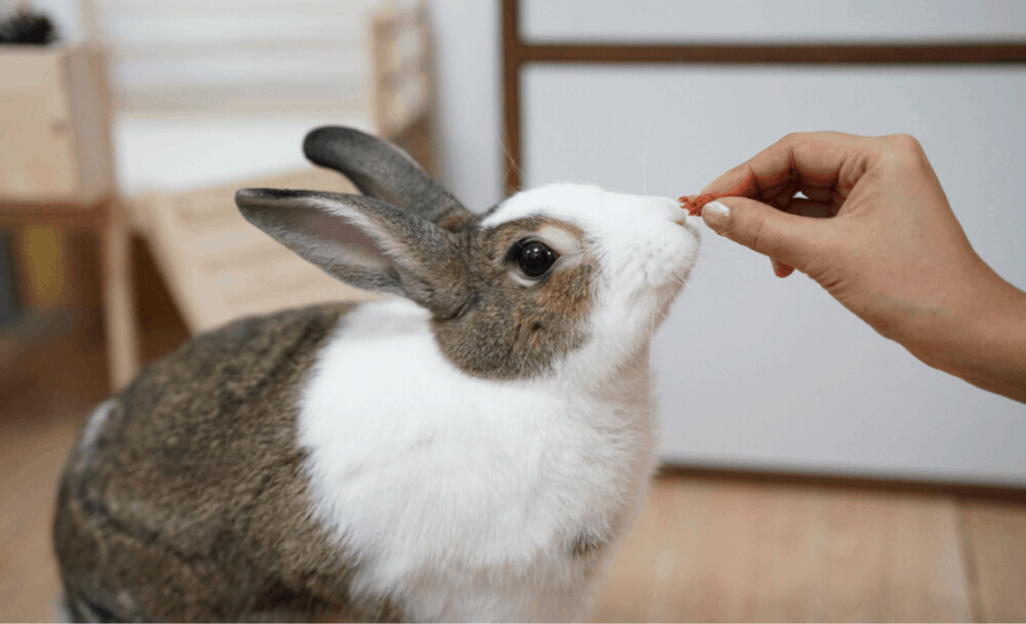Can Rabbits Have Peanuts?
Rabbits are known for their herbivorous diet, consisting mainly of fresh greens, hay, and a small amount of pellets. However, many rabbit owners wonder if it’s safe to feed their furry friends other types of food, such as peanuts. In this article, we will explore whether rabbits can have peanuts and the potential risks associated with feeding them to rabbits.

The Nutritional Value of Peanuts
Peanuts are a popular snack enjoyed by many humans, but are they suitable for rabbits? Peanuts are high in fat and protein, which are essential for humans but can be harmful to rabbits in excessive amounts. While rabbits need some fat and protein in their diet, they should primarily come from hay, fresh greens, and a small number of pellets specifically formulated for rabbits.
Tip: Rabbits have sensitive digestive systems, and their diet should primarily consist of hay and fresh greens. It’s important to avoid introducing foods that could potentially harm their health.
Potential Risks of Feeding Peanuts to Rabbits
Feeding peanuts to rabbits can pose several risks to their health. Here are some reasons why peanuts should be avoided in a rabbit’s diet:
- High-Fat Content: Peanuts contain a significant amount of fat, which can lead to obesity in rabbits. Obesity can cause various health issues, including heart problems, joint pain, and reduced lifespan.
- Potential Allergies: Some rabbits may be allergic to peanuts, resulting in allergic reactions such as itching, swelling, or difficulty breathing.
- Digestive Upset: Rabbits have delicate digestive systems that are not designed to handle high-fat foods like peanuts. Feeding peanuts to rabbits can cause digestive upset, including diarrhea, bloating, and discomfort.
- Choking Hazard: Peanuts can be a choking hazard for rabbits, especially if they are given whole peanuts. Rabbits have small throats and may struggle to swallow them properly.
Alternatives to Peanuts
If you’re looking for alternative treats or snacks to offer your rabbit, there are several safe options to consider:
- Fruits: Rabbits can enjoy small portions of fruits such as apples, bananas, strawberries, and blueberries. Remember to introduce new fruits gradually and in moderation, as sudden changes in diet can cause digestive issues.
- Veggies: A variety of vegetables can be a healthy addition to your rabbit’s diet. Examples include carrots, celery, bell peppers, and leafy greens like kale and spinach.
- Herbs: Fresh herbs like parsley, basil, and cilantro can provide additional flavor and nutrients to your rabbit’s diet.
- Rabbit-Safe Treats: There are commercially available treats specifically formulated for rabbits, which can be a safer option than offering human foods.
Frequently Asked Questions (FAQs)
1. Can rabbits eat peanut butter?
No, rabbits should not be given peanut butter. Peanut butter tends to be high in fat and sugar, which can be harmful to rabbits. Stick to their natural diet of hay, fresh greens, and a small number of pellets.
2. Can rabbits have peanut shells?
Peanut shells are not suitable for rabbits to consume. They are difficult to digest and can cause digestive issues. It’s best to avoid giving peanut shells to rabbits.
3. Are all nuts unsafe for rabbits?
Not all nuts are safe for rabbits. While some nuts, such as almonds and cashews, are generally considered safe in small quantities, others like peanuts should be avoided due to their high fat content and potential allergenic properties. It’s always best to consult with a veterinarian before introducing any new foods into your rabbit’s diet.
4. Can rabbits have peanut hay?
It’s important to note that peanut hay is not suitable for rabbits. While it may sound similar to regular hay, peanut hay is a byproduct of peanut plants and has different nutritional properties. Stick to feeding your rabbit high-quality grass hay instead.
In conclusion, peanuts should not be included in a rabbit’s diet due to their high fat content, potential allergies, and digestive issues they can cause. It’s crucial to prioritize a rabbit’s health by providing a balanced diet consisting of hay, fresh greens, and a small number of pellets specifically formulated for rabbits. If you’re unsure about what foods are safe for your rabbit, consult with a veterinarian for personalized advice.
Related Articles…
Copyright Notice:
All images on this website are obtained from the internet and remain copyrighted to their original owners. If you hold copyright to any image and want it taken down, please reach us.